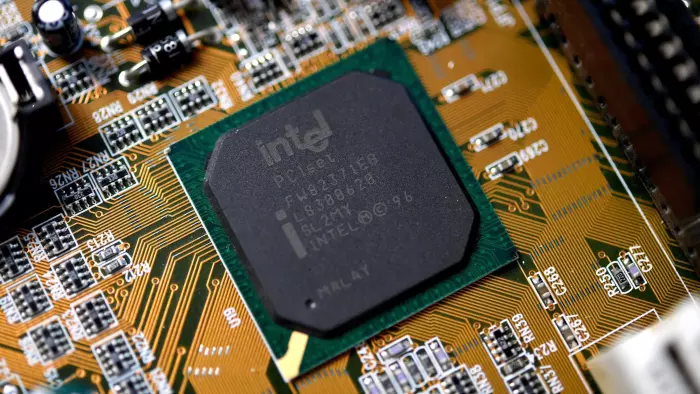
The Financial Times reports that when billions of dollars in new US tariffs against China come into effect on Friday, just $250m worth of chips will be hit. But the levies have triggered deeper anxieties among US semiconductor companies about disruption to their close trade links with China — as well as worries that Washington is shooting at the wrong target in trying to protect a key part of the American technology industry. A reminder of the high stakes came on Tuesday, as news spread of a preliminary injunction from a Chinese court banning some sales in China by Idaho-based Micron Technology, whose memory chips are used in many smartphones, computers and other devices. Fears that the company would be at least partially shut out of a market that accounted for about half its revenues last year sent Micron's shares down more than 5 per cent on Tuesday. To many observers in the US, the timing of the Chinese ruling, which came in a patent case, was no coincidence. Ambrish Srivastava, an analyst at BMO Capital, said it appeared to be a "tit-for-tat" move with tariffs looming . "It's showing how much leverage China has," he said... If the White House's new tariffs on imports from China were meant to reassure American chip companies, they have failed. The complexity of the semiconductor supply chain means US companies will be hurt more than their Chinese counterparts by the levies, according to the Semiconductor Industry Association in Washington.
The Washington Post says that European businesses are unsettled as they watch the U.S. and China collide over trade. And for good reason: the nascent global trade war could represent the biggest single threat to the economic upswing that has helped the region get past its financial crisis. In theory, some European companies could benefit, jumping into market niches if Chinese businesses are kept out of the U.S. market. But that would only be a few companies or sectors. When your entire economy is heavily dependent on trade, an overall slowdown in global commerce caused by tit-for-tat import taxes provokes fear and undermines confidence. And that's just what's happening in Europe. By one measure, business confidence has fallen in six of the past seven months in Germany, where exports are almost half of annual economic output. "It's worth all our efforts to defuse this conflict, so it doesn't become a war," German Chancellor Angela Merkel said Wednesday. The U.S. is due to put tariffs on $34 billion worth of Chinese goods on Friday. The Chinese will respond with tariffs on an equivalent value of U.S. products such as soybeans, seafood and crude oil. Amid all this, Europe has its own trade dispute with the U.S. After the U.S. put tariffs on steel and aluminum from many allies, including the European Union, the 28-country bloc responded with import taxes on some $3.25 billion of U.S. goods. The Trump administration is also studying the option of putting tariffs on cars, which would significantly escalate the confrontation.
- 2018-07-03 China's big bond experiment is about to go through a rough patch
- 2018-07-02 Trump Trade War Arrives in the Data as China Awaits Tariffs
- 2018-06-29 State Department risks China's ire with request for US Marines in Taiwan
- 2018-06-28 Xi Warns Mattis China Won’t Surrender ‘One Inch’ of Territory
- 2018-06-27 Trump Backs Softer Restrictions on Chinese Investment
- 2018-06-26 Why markets don't like US investment restrictions on China
- 2018-06-25 Trump plans to bar China from investing in US tech firms and block more tech exports
- 2018-06-24 US to give North Korea post-summit timeline with 'asks' soon: official
- 2018-06-21 As Kim Ends Beijing Visit, China and North Korea Craft New Messages
- 2018-06-20 White House says China's 'economic aggression' is a global threat
- Bloomberg China Vows Not to Fire Tariff Shot Ahead of US
- AXIOS.com Made in China: The millennial-loved goods facing Trump's trade war
- Bloomberg The China-US Power Struggle Is Just Beginning
- Financial Times China's central bank soothes currency market, for now
- Bloomberg Asian Pension Funds Cut Back on Stocks as US and China Fight
- mobile.reuters.com Trade war threatens China love of US barbecue
- Wall Street Journal WTO Warns Rising Import Restrictions Make It Harder to Resolve Trade Disputes
- AXIOS.com Automated fashion is now a reality in new Chinese store
- Financial Times Malaysia suspends $22bn China-backed projects
- Bloomberg Trump Tariff Threat Jolts Car-Parts Giant Eyeing China Expansion